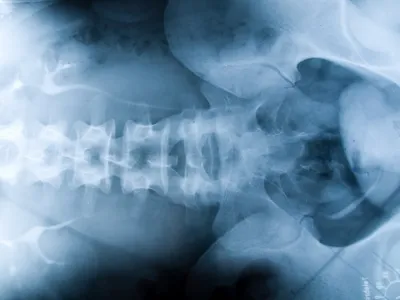We usually make an appointment with an RMT (registered massage therapist) to work out kinks, tight areas, tension, and knotted muscles. However, it shouldn’t surprise you that your massage therapist can actually tell you quite a bit about your general health—and even secretly guess a few of your bad habits.
Here are eight health factors that can be determined by massage therapists as soon as you lie down on their tables…
1. You’re a Commuter
If you use your car to get to work—especially if you sit in said car for a few hours each day—you’re massage therapist can tell. Those of us who sit in traffic behind the wheel have tell tale forward reaching posture.
This means your neck leans too far forward. Oftentimes your shoulders will also display tightness and even hunch if you spend long hours commuting to and from work, or drive for a living.
2. You’re Tied to Your Smartphone
If you spend frequent durations of your day with your face in your smartphone screen—scanning various social media, texting up a storm, and watching videos—your massage therapist will know!
RMTs can tell you text a lot from the imbalance of your shoulders and the revealing position of your head—both will naturally cast forward and downward. Your shoulders might also be tender to a therapist’s touch.
3. You Suffer from Allergies
It’s not odd for your massage therapist to ask you how you’re feeling and to discover that you suffer from seasonal allergies. However, an RMT can also tell that you’re an allergy sufferer without even asking.
If your face shows inflammation—particularly in the areas of the cheeks, jaw, forehead, and in the tissues surrounding the eyes—your RMT will feel it. You may feel tenderness in these inflamed areas if you get any facial massage, as well as in the neck, underarms, and chest.
4. You Have a Sedentary Job
You likely don’t even have to disrobe and hop on an RMT’s table for them to know that you work a sedentary (or sitting) job. In fact, imbalances in the hips (where one is higher than the other) will be their first indication.
After a bit of rubbing, if an RMT reveals a weak lower back muscles, and/or tight legs and glutes, they’ll know you work sitting for most of the day.
5. Past Injuries
You may visit a massage therapist to rub away the pain and soothe the inflammation of an old injury, however, tissues that are inflamed or even hot to their touch will let them know an acute injury has occurred.
Repetitive stress injuries (i.e., hamstrings, carpel tunnel) will feel tight and rigid in muscles and tendons. Your RMT may also even tell you that your muscles are dehydrated if they display a lot of tightness.
6. You Need to Hydrate
You’re usually told to drink lots of water and herbal teas following a massage therapy appointment. However, did you know that you’re RMT can tell you’re your body actually lacks fluids during a treatment.
If trigger points, located in your upper back, are tender to a massage therapist’s touch, it usually indicates that fluid levels are low.
7. You’re Purse is Too Heavy
Ladies, many of us are guilty of stuffing our bags with every essential. From makeup to granola bars, and from bottled water to baby toys—your RMT can tell if you’re guilty of toting around a too heavy purse without a breakdown of the contents.
Folks who tend to carry a heavy object on one side of the body experience telltale tightness on that side. The tightness is caused by hiking the object onto the shoulder and shifting from one leg to the other when standing, which can cause a pelvic tilt, as well as tight quads and hamstrings.
8. You Sleep on Your Stomach
I’m a stomach sleeper, and when my massage therapist asked me, “How do you sleep?” I would have never guessed he already knew the answer.
It turns out that stomach sleepers often develop a signature type of neck strain. And your RMT can feel the tightness as they administer a rub down.











